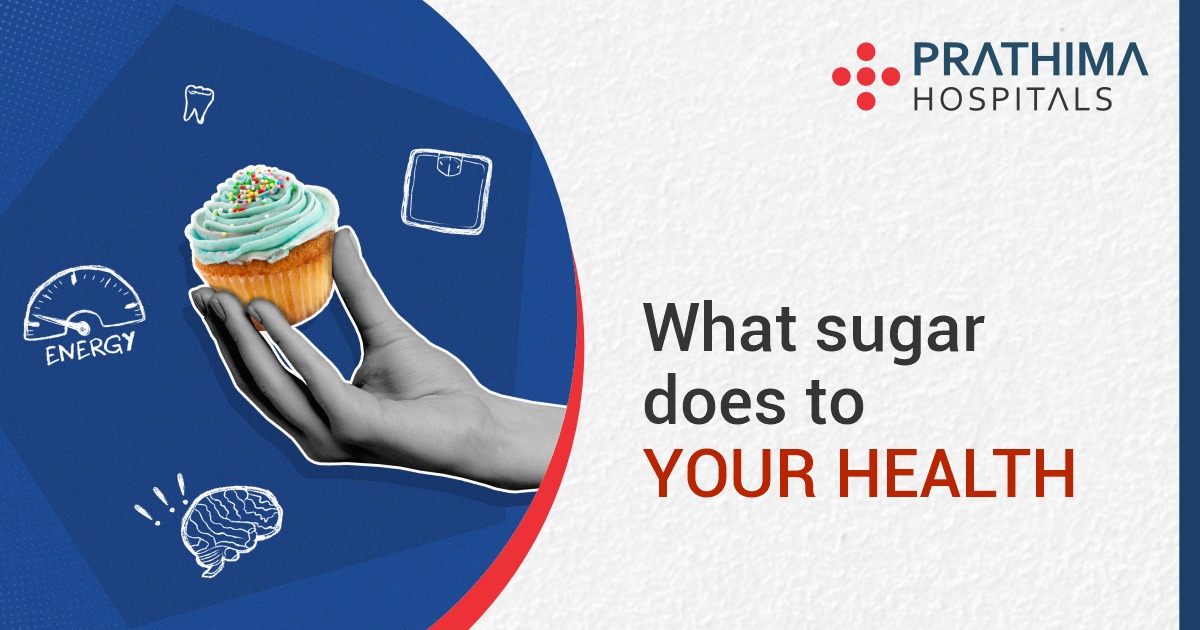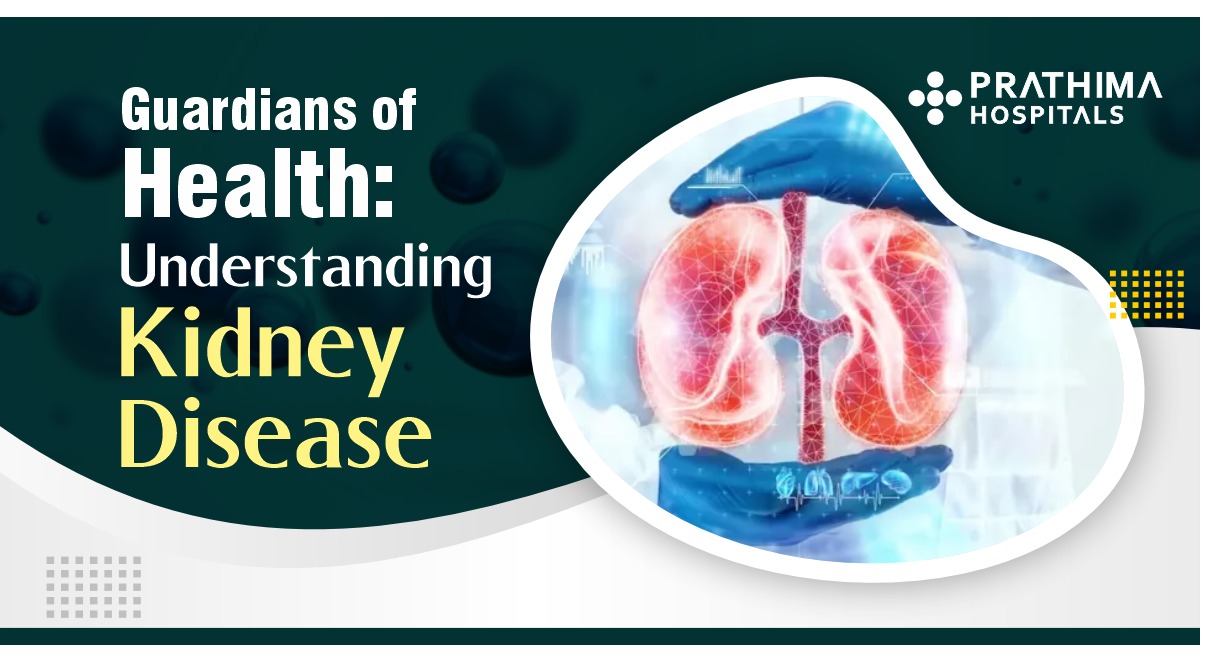Sugar is actually poison! Find out how it affects your health!

Impact of Sugar on Human Health
Introduction:
Sugar, a ubiquitous and delectable ingredient, has become an integral part of our modern diet. From sweet treats to processed foods, it seems to be everywhere, making it challenging to avoid. According to General Physician in Hyderabad the alluring taste, and the excessive consumption of sugar poses significant risks to our health. In this article, we will explore the reasons why sugar is detrimental to our well-being and how it impacts various aspects of our physical and mental health.
The Sugar Epidemic
In recent decades, the consumption of added sugars has skyrocketed, leading to a global health crisis. Sugary beverages, refined snacks, and processed foods have become dietary staples for many, resulting in an excessive intake of sugar as per General Physician in KPHB. The World Health Organization (WHO) recommends limiting daily sugar intake to less than 10% of total energy intake, with further health benefits observed at intakes below 5%. Unfortunately, the average person’s sugar consumption far exceeds these guidelines, and the consequences are far-reaching.
- Weight Gain and Obesity:
Excessive sugar consumption plays a significant role in weight gain and the development of obesity. Here is a detailed explanation of how sugar contributes to these conditions:
Caloric Density: Sugary foods and beverages tend to be high in calories while providing minimal nutritional value. They are often referred to as “empty calories” because they lack essential nutrients such as vitamins, minerals, and fibre. Consuming these calorie-dense foods can lead to an imbalance between energy intake and expenditure, where the intake of calories exceeds the body’s energy needs. The excess calories are then stored as fat, resulting in weight gain over time.
Increased Appetite and Overeating: Sugar can stimulate the reward centres in the brain, leading to a heightened sensation of pleasure and cravings for more sugary foods. The consumption of sugar triggers the release of dopamine, a neurotransmitter associated with pleasure and reward. This can create a cycle of craving and indulgence in sugary foods, leading to overeating and subsequent weight gain.
High Glycemic Index: Sugary foods, especially those made with refined sugars, tend to have a high glycemic index. The glycemic index measures how quickly carbohydrate-containing food raises blood sugar levels. Foods with a high glycemic index cause a rapid spike in blood glucose levels, leading to a subsequent drop in blood sugar levels, which can trigger hunger and cravings. This cycle of blood sugar fluctuations can contribute to overeating and weight gain.
Impact on Hormones: Sugar consumption can disrupt the hormonal balance in the body, specifically affecting hormones that regulate appetite and satiety. Research suggests that excessive sugar intake can impair the function of hormones such as insulin, leptin, and ghrelin.
- Insulin: When we consume sugar, especially in large quantities or in the form of sugary beverages, it causes a rapid increase in blood glucose levels. In response, the pancreas releases insulin to facilitate the uptake of glucose by cells. However, frequent spikes in blood sugar levels due to excessive sugar consumption can lead to insulin resistance, where cells become less responsive to the actions of insulin. This can result in chronically elevated insulin levels, which may contribute to increased fat storage and weight gain.
- Leptin: Leptin is a hormone produced by fat cells that helps regulate appetite and energy balance. It signals to the brain when we have consumed enough food and should stop eating. Excessive sugar consumption can disrupt the function of leptin, leading to leptin resistance. When the brain becomes resistant to the effects of leptin, it does not receive proper signals of satiety, leading to overeating and weight gain
- Ghrelin: Ghrelin is a hormone produced in the stomach that stimulates hunger. Studies have shown that consuming sugary foods and beverages can increase ghrelin levels, leading to increased appetite and a higher likelihood of overeating.
Association with Unhealthy Dietary Patterns: Foods high in added sugars are often low in nutritional value and can displace healthier food choices from the diet. People who consume a diet rich in sugary foods and beverages tend to have poorer overall diet quality, characterized by higher intakes of calories, unhealthy fats, and low nutrient density. These dietary patterns contribute to weight gain and obesity risk.
- Increasing the risk of Type 2 Diabetes:
Excessive sugar consumption is strongly linked to an increased risk of developing type 2 diabetes, a chronic metabolic disorder affecting millions worldwide. As said by General Physician in KPHB if we consume sugar, particularly in the form of sugary drinks, it causes a rapid surge in blood glucose levels. Over time, the body’s insulin response may become compromised, leading to insulin resistance. As a result, glucose is not efficiently transported from the bloodstream into cells, leading to persistently high blood sugar levels. Prolonged insulin resistance can eventually lead to the development of type 2 diabetes.
- Cardiovascular Disease:
A diet high in sugar has been closely associated with an elevated risk of developing cardiovascular diseases. Excessive sugar intake contributes to various risk factors such as obesity, type 2 diabetes, and high blood pressure, all of which are significant contributors to cardiovascular disease. Additionally, consuming too much sugar has been linked to increased levels of triglycerides, a type of fat that circulates in the blood and can raise the risk of heart disease.
- Dental Health Issues:
Sugar is one of the primary culprits behind dental health problems such as tooth decay and cavities. Harmful bacteria in the mouth feed on sugar, producing acids that attack tooth enamel, leading to decay. Frequent sugar consumption, especially in the form of sticky sweets or sugary beverages, increases the exposure of teeth to these acids, heightening the risk of dental problems. Poor oral health not only affects our ability to chew and digest food properly but can also have a detrimental impact on our overall well-being.
- Negative Impact on Mental Health:
Excessive sugar consumption has been linked to negative effects on mental health. Here is a detailed explanation of how sugar can impact mental well-being:
Blood Sugar Fluctuations: Consuming sugary foods and beverages can lead to rapid spikes in blood sugar levels, followed by subsequent crashes. These fluctuations in blood sugar can impact mood and energy levels. After a spike in blood sugar, insulin is released to bring glucose levels back to normal. However, this can result in a rapid drop in blood sugar, leading to feelings of fatigue, irritability, and difficulty concentrating as said by General Physician in Kukatpally. These fluctuations can negatively impact overall mood stability and mental well-being.
Inflammation and Oxidative Stress: High sugar intake has been associated with increased inflammation and oxidative stress in the body. Chronic inflammation and oxidative stress can have detrimental effects on brain health and contribute to the development or exacerbation of mental health disorders. Studies have found links between high sugar consumption and conditions such as depression, anxiety, and cognitive decline.
Disruption of Neurotransmitter Balance: Neurotransmitters are chemical messengers in the brain that regulate mood, behaviour, and overall mental functioning. Excessive sugar consumption can disrupt the delicate balance of neurotransmitters, particularly those involved in mood regulation, such as serotonin. Sugar can influence the availability and production of neurotransmitters, potentially leading to imbalances and affecting mental health.
Impact on Gut Microbiota: Emerging research suggests that the health of the gut microbiota, the trillions of microorganisms residing in our digestive system, plays a crucial role in mental health. Excessive sugar consumption can negatively impact the diversity and composition of the gut microbiota, potentially leading to dysbiosis (an imbalance in gut bacteria). Imbalances in the gut microbiota have been linked to mental health conditions such as depression and anxiety.
Addiction-Like Effects: Sugar has been found to have addictive properties, and excessive consumption can lead to sugar addiction or dependence. The consumption of sugar triggers the release of dopamine, a neurotransmitter associated with pleasure and reward. Over time, individuals may develop a tolerance to sugar and require larger amounts to experience the same pleasurable effects. This cycle of craving and consumption can negatively impact mental well-being and contribute to feelings of guilt, shame, and loss of control.
Impact on Stress Response: High sugar intake has been shown to influence the body’s stress response system. Chronically elevated levels of sugar can contribute to dysregulation of the hypothalamic-pituitary-adrenal (HPA) axis, which is responsible for the body’s response to stress. This dysregulation can lead to increased susceptibility to stress-related mental health disorders, such as anxiety and depression.
Nutritional Deficiencies: Foods high in added sugars are often low in essential nutrients, such as vitamins, minerals, and antioxidants. Inadequate intake of these nutrients can negatively impact brain function and mental well-being. Nutritional deficiencies have been associated with an increased risk of mental health disorders, and a diet lacking in nutrient-dense foods due to high sugar consumption can contribute to these deficiencies.
Conclusion:
While sugar may provide momentary pleasure to our taste buds, its long-term consequences on our health are undeniable. As suggested in the above article by General Physician in Kachiguda excessive sugar consumption contributes to weight gain, obesity, type 2 diabetes, cardiovascular diseases, dental problems, and mental health issues. Reducing our sugar intake is crucial for promoting a healthier lifestyle and preventing these health conditions. By making conscious choices and opting for whole, unprocessed foods, we can take significant steps toward safeguarding our well-being and embracing a balanced and nourishing diet. Remember, moderation is key, and reducing our reliance on added sugars is a step in the right direction for a healthier future.
.
.
.
.
.
For more details:
📞:: 733 733 6600 | 040 4345 4345
🌐:: https://prathimahospitals.com/book-appointment/





